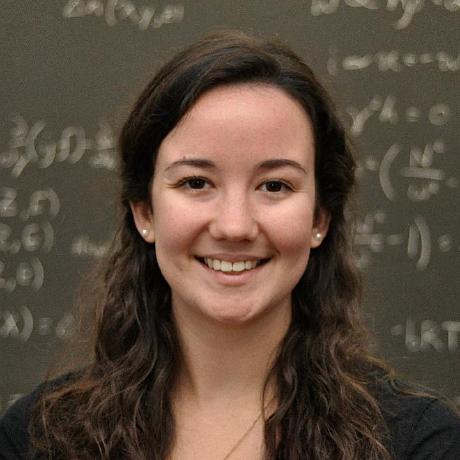Finding the path: Molly Menzel, Ph.D., NASA Postdoctoral Fellow, discusses how she found her research passion

Molly Menzel, Ph.D., is an atmosphere scientist in the NASA Postdoctoral Program who conducts her research at the NASA Goddard Institute for Space Studies, a smaller office under the umbrella of the Goddard Space Flight Center. When she started college, though, Menzel had no idea that she’d end up in her current fellowship. She was an engineering major focused on fluid dynamics and solid mechanics dynamics. During her graduate program she discovered atmospheric dynamics, which led to a focus on climate science. In this episode of Further Together, Menzel says her research doesn’t focus on day-to-day weather, but on the background context for why the weather is changing.
Center: Goddard Space Flight Center
Sometimes the solution to life’s big questions is right in front of us. Sometimes it’s as easy as 1+1=2. But for Molly Menzel, Ph.D., her career didn’t necessarily follow that linear path.
Menzel, who is an atmosphere scientist in the NASA Postdoctoral Program, has always loved math.
“When I was a kid, I wasn’t necessarily excited by science as much as I really enjoyed math,” she explained in a recent interview for Further Together, the ORAU Podcast. “Math was one of the subjects that I was really good at. It came naturally. I liked that it had a wrong answer or a right answer. Sometimes with writing or English or history, it was always a bit more subjective. But I liked that math was always a very objective field. And science was interesting, but I don't think my interest really grew until I was in high school physics. And then I feel like it gave math a reason. In math you're just dealing with numbers and symbols and it doesn't really mean much. But then physics takes these equations and uses them to explain the world around us, and I think that really fascinated me.”
Menzel conducts her research at the NASA Goddard Institute for Space Studies, a smaller office under the umbrella of the Goddard Space Flight Center. However, when she started her career, she had no idea that she’d end up in her current fellowship.
“When I was in undergrad, I was an engineering major and it was engineering physics related, so it was very much focused on fluid dynamics, solid mechanics dynamics,” she said. “I knew I never wanted to be an engineer, and so I started looking into graduate programs. I always was really focused on fluid dynamics and a very natural application of that when I was looking at grad programs was atmospheric science. Because if you think about it, both the atmosphere and the ocean are just these massive bodies of fluids floating around our rotating sphere. There are a lot of interesting science and dynamics there. So that led me to atmospheric science and once I started my master's program, I went into the climate science realm of atmospheric science.”
Menzel decided to pursue a master’s degree at McGill University in Montreal, then her Ph.D. at Johns Hopkins University.
“The focus of my research is not necessarily to explain how our weather is changing day to day, but more so to explain how the background circulation or the background context for our weather is changing,” Menzel explained. “In theory, if you really do want to get to the more surface impacts, you have to understand what's going on from a larger scale. That's where my research lives.”
Menzel has enjoyed the benefits of being in a smaller office during her NPP Fellowship, saying that that environment means she’s gotten to know more of the people in the building. Not only is the setting incredibly friendly, but it’s also opened up her world to new opportunities for collaboration.
“Everyone's doing their own really interesting research and there's a lot of support for people to follow what interests them,” she said. “I'm constantly seeking out more connections. Sometimes there are natural collaborations that form. Some are more structured than others, but it’s something I seek out because I'm such a better researcher when I have collaborators and I can pull myself out of these kind of niche issues and talk to others.”
When she was asked what advice she would give to a hopeful scientist, Menzel knew exactly what to say.
“I always advise folks to follow their interests,” she said. “I look back at my path to where I am now, and it was very much not linear. It was not a straight line. I didn't have this dream when I was five that I wanted to be a NASA scientist. I always thought NASA was cool, but I definitely meandered my way along following what interested me for the next step. I tell people, ‘follow your interests, but also you can change your minds and your interests can change.’ It feels like when you’re in school, what you study, it's these really heavy decisions you're making. Those decisions set you into a trajectory, but you can change your mind and you don't have to commit to something for the rest of your life. What's important is when you do want to make a change in your future, not to necessarily be wasteful with the experience you have, but think creatively: ‘how can I use the experience I have for what I want to do next?’”
Menzel may not have foreseen NASA, or even this career path, in her future, but it’s easy to see that throughout this nonlinear journey, she’s found her calling.
